Mental Health, “One Size Does Not Fit All”
Talking about mental health publicly is still somewhat taboo, even though more people are opening up about their experiences. Defining mental health isn’t straightforward, but experts agree that emotions, behavior, and functionality are key factors to consider. It’s also important to understand that mental health exists on a spectrum, ranging from mentally healthy to mentally ill, influenced by current circumstances, long-term experiences, and medical conditions. Ultimately, help is available for those seeking support to navigate the complexities of mental health. No one must suffer alone. In tonight’s installment of the Five Point Break Down, reporter Paul Lopez takes a closer look at navigating the intricacies of mental health and mental illness. Here is that report.
Paul Lopez, Reporting
When punta rock artist Hubee burst onto the music scene, he was praised for his undeniable talent. He’s been making waves with hit songs like “Can’t Leff,” “Tell Them,” and most recently, “High Favored.”
 Highly Favored
Highly Favored
“Sorry to the people… and I cant be everything.”
In March, the music world was stunned when punta rock sensation Hubee made a startling announcement at the beginning of one of his performances. He revealed that he had just experienced a mental health breakdown moments before stepping on stage. The immediate reaction from the audience was disappointing, with some making fun of the situation and hurling disrespectful remarks. Hubee later took to Facebook to share more about the severity of his struggles, shedding light on the challenges he was facing.
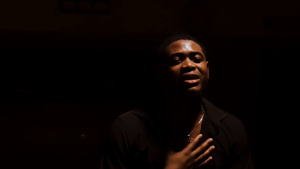 However, the tide quickly turned on social media. Fans and followers flooded Facebook with messages of encouragement and support, praising Hubee for his bravery. This sparked a broader public conversation, highlighting that while awareness around mental health has grown, stigma persists.
However, the tide quickly turned on social media. Fans and followers flooded Facebook with messages of encouragement and support, praising Hubee for his bravery. This sparked a broader public conversation, highlighting that while awareness around mental health has grown, stigma persists.
 Stigma Surrounding Mental Health
Stigma Surrounding Mental Health
Miss Universe Belize, Halima Hoy, is a passionate advocate for holistic health and well-being. She’s been at the forefront of public awareness campaigns and has hosted numerous interviews on the topic. We had the chance to catch up with her at an event in Belize City and asked her why holistic health remains such a taboo subject.

Halima Hoy
Halima Hoy, Miss Universe Belize 2024/2025
“I think we often think that there is something wrong, or we attach a negative connotation to having mental health illness or mental health problems. So, often time people shy away from talking about their feelings, or we invalidate their feelings, like “why you feel that way bway, you should not feel that way and stop the think like that.”. But we need to learn to take a more professional approach, or just a more empathetic approach overall. It is on spectrum, and it can be something you cannot identify, to something that is extremely severe.”
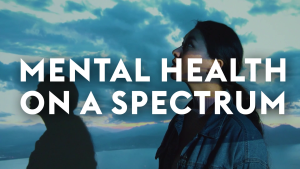 Mental Health on a Spectrum
Mental Health on a Spectrum
Dr. Nikhil Jain, a mental health consultant from the Center for Mental Health Law and Policy, delves into the idea that mental health exists on a spectrum, ranging from mentally healthy to mentally ill. He explains that mental health is defined by a trio of factors: our emotions, how those emotions influence our behavior, and ultimately, how they affect our overall functioning in society.
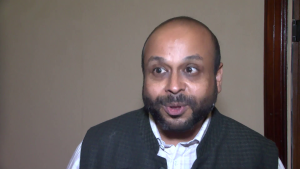
Dr. Nikhil Jain
Dr. Nikhil Jain, Mental Health Consultant, PAHO
“I would not call it mental health breakdown, but if I am talking, right now my mind is actually working in certain directions. I might be a little distressed, because this is an interview and you are asking me some questions. You might not be, because this is your day to day job. But, something might happen and this can immediately change. What we are trying to understand is that mental health is not a static thing, it is more like a moving dynamic, it is a continuum where there are multiple situations which one might face. So that will the determine if the person is currently feeling stressed, whether they are facing a long term issue which might make them more distressed, an ultimately if provided with a predisposition, some environmental factors or some sort of genetical factor which is underlying and might actually push them to the verge of being mentally ill, what we define it as.”
In other words, the mental health spectrum covers everything from isolated moments of distress due to current experiences, to long-term issues that lead to health deterioration, and even medical conditions. Traditionally, mental health has been viewed mainly as a biomedical issue. But now, there’s a growing recognition of the importance of psychosocial and cultural factors in understanding an individual’s mental health.
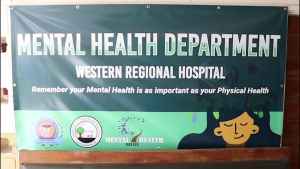 Help Is Available
Help Is Available
According to the Ministry of Health and Wellness, nearly twelve thousand people sought help for mental health issues at government-run clinics between 2018 and 2021. Every day, more individuals are reaching out for these services, says Ivette Quintanilla, the Technical Advisor at the Mental Health Unit.
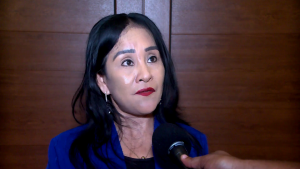
Ivette Quintanilla
Ivette Quintanilla, Technical Advisor, Mental Health Unit
“Everyday we are seeing patients coming in to access the services and after COVID we are seeing more persons accessing services and as we go along we are seeing more persons reaching out to us in terms of requesting mental health services. Mental health should be a practice everyday. Just as we encourage taking care of our body, we encourage exercise and good sleep, and other things to take care of your body it is the same way we encourage you to look after your mental health. It is what we call wellness or selfcare. That is what we encourage you. So we don’t have to wait until you are not coping with stress or different situations in life that may lead to the disorder. So, you don’t have to wait until you reach there to do something about it.”
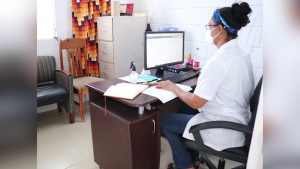 You Don’t Have to Suffer in Silence
You Don’t Have to Suffer in Silence
Whether you’re a public figure like musician Hubee or someone living a private life, it’s crucial to understand that mental health isn’t static. The factors contributing to mental illness can vary widely, and what works as a remedy for one person might not have the same effect for another. Dr. Jain emphasizes that suffering in silence is never the best response, especially in extreme cases.
Dr. Nikhil Jain
“What we usually see is that I depend on my own resilience, I can do it and move forward, maybe push on my own with more. That is something that does not always work. In some cases where there is a small trigger, a stressful condition, all of us bounces back to our normal life. Sometimes when there are engrained conditions the person is facing they usually need help. This help can be an informal peer support, a formal specialist care, psychological care, psychosocial care, it could be anting for that. It should not be just putting one person to be just strong about it, be more resilient, just push through and jump back. It is not always for all the individuals.”
Reporting for News Five, I am Paul Lopez.






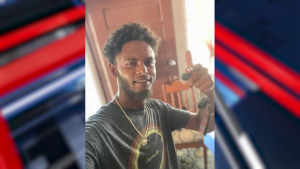
Facebook Comments